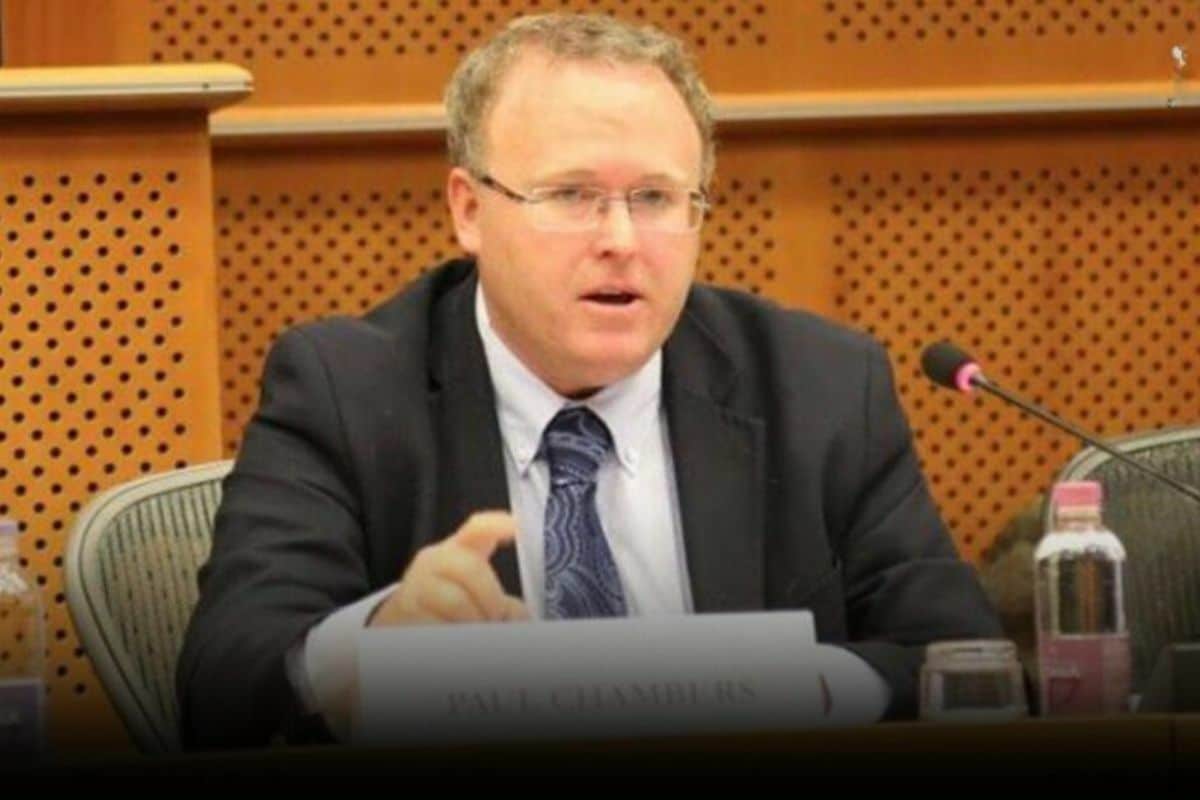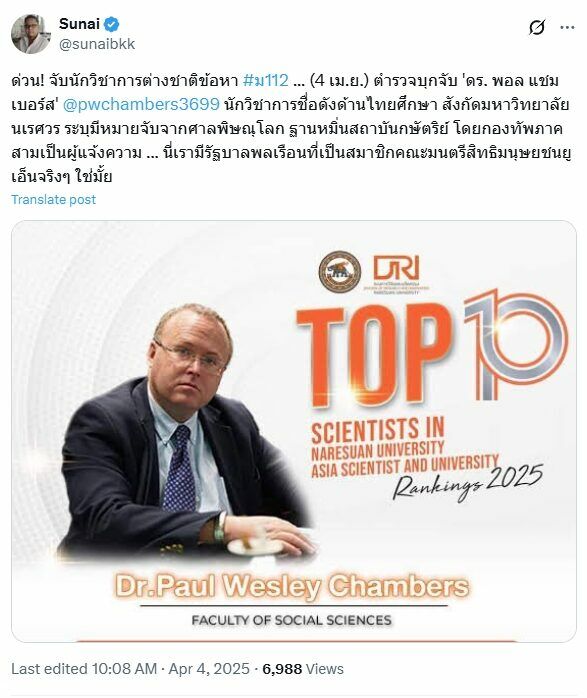American professor denied bail on Section 112 charges

Paul Chambers, a prominent American academic from Naresuan University, has been denied bail by Phitsanulok Court following his arrest on charges under Section 112, the lese majeste law, sparking widespread outrage over academic freedom and human rights.
Dr Chambers, an expert in Southeast Asian military-civilian relations, was apprehended after an arrest warrant was issued by the Phitsanulok Provincial Court.
Today, April 8, the Lawyers for Human Rights Centre confirmed that the American national who works at Naresuan University’s ASEAN Community Studies Institute had been detained after meeting with investigators at Phitsanulok City Police Station.
The Third Army Region filed the complaint against him, accusing him of defaming the monarchy and violating the Computer Crime Act by allegedly disseminating false information with the intent to damage national security.
These charges have prompted backlash from both Thai politicians and human rights groups, who argue that the arrest undermines freedom of expression and academic independence.

“Foreign academic arrested on charges of #Section112,” wrote Sunai Phasuk, an advisor to Human Rights Watch in Thailand, in a statement condemning the arrest. He questioned the state of democracy in Thailand, asking, “Do we have a civilian government that is a member of the UN Human Rights Council?”
Similarly, Chetwan Tueprakon, a member of the Prachachon Party, expressed concern over the state’s growing suppression of academic freedom, saying, “Human rights are ignored, and academic freedom has been completely trampled.”

Chambers, who has extensively studied the Thai military’s role in politics, was taken into custody despite no prior subpoena being issued. His arrest stems from his work, which often critically examines the military’s influence over Thai political affairs.
As an expert on military-civilian relations, his academic contributions have shaped public understanding of the Thai military’s power dynamics, reported Matichon.
Thailand’s lese majeste law, stipulated in Section 112 of the Criminal Code, criminalises defamation, insults, or threats against the monarchy, with penalties ranging from three to 15 years in prison.
Latest Thailand News
Follow The Thaiger on Google News:


























